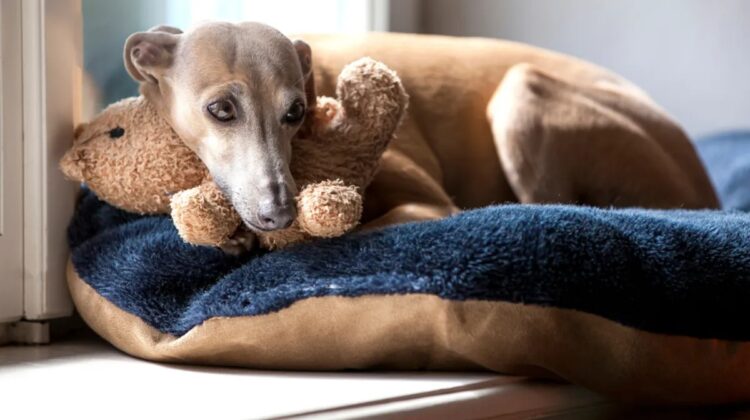
“We hypothesize a real canine disease,” say doctors.
The spread of the monkeypox virus has surprised specialists since its unexpected outbreak in Europe and the United States in May. Now, a case study published in The Lancet has altered the picture once more. A case has been proven in a pet dog for the first time, and it was most likely caught from the owners.
It was previously unknown if pets such as cats and dogs were susceptible to the monkeypox virus. It’s a zoonotic virus, which means it may transfer from animals to humans – but no examples of it travelling the other way have been reported.
However, that was always a possibility. The working premise is that any animal might possibly catch and spread the virus, which is why the CDC advised persons with monkeypox to avoid contact with pets until completely healed in June.
According to the Lancet, the two human patients were cautious to segregate their dog from other dogs and humans as soon as their own symptoms appeared, but they continued to let the pet lie in their bed. The four-year-old greyhound acquired the virus’s tell-tale sores on its belly and anus two weeks later, and a PCR test confirmed the presence of monkeypox.
The DNA of the monkeypox virus strains detected in the dog and one of its people revealed 100 percent sequence identity, indicating that they were very probably related, and both belonged to the hMPXV-1 clade, lineage B.1. This is the strain that has been spreading across Europe and the United States since April, infecting over 2,000 individuals in Paris, where the dog and owners live.
“To the best of our knowledge,” the case report says, “the kinetics of symptom onset in both patients and, later, in their dog imply human-to-dog transmission of monkeypox virus.”
“Given the dog’s skin and mucosal lesions, as well as positive monkeypox viral PCR results from anal and oral swabs, we suspect a true canine illness, rather than simple virus carriage through close contact with people or airborne transmission.”
In other words, monkeypox in pets should be recognized as a potentially deadly disease, and the authors emphasize the necessity of keeping animals separate from monkeypox-infected people.
“Infected persons should not care for affected dogs,” the CDC warns. “The person suffering from monkeypox should avoid direct contact with the exposed animal and, if feasible, ask another household member to care for the animal until the person suffering from monkeypox is fully healed.”
“Wash your hands or use an alcohol-based hand rub before and after caring for your healthy pets if you have monkeypox and must care for them during home isolation,” they advise. “It is also critical to cover any skin rash as much as possible (i.e., long sleeves, long pants), as well as wear gloves and a well-fitting mask or respirator while caring for your animals.”

Leave a Reply